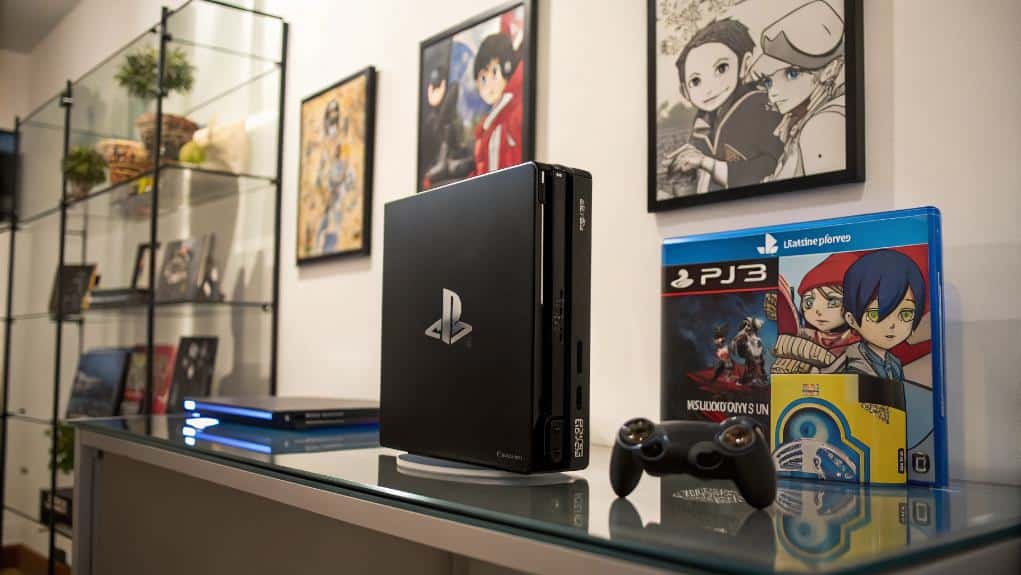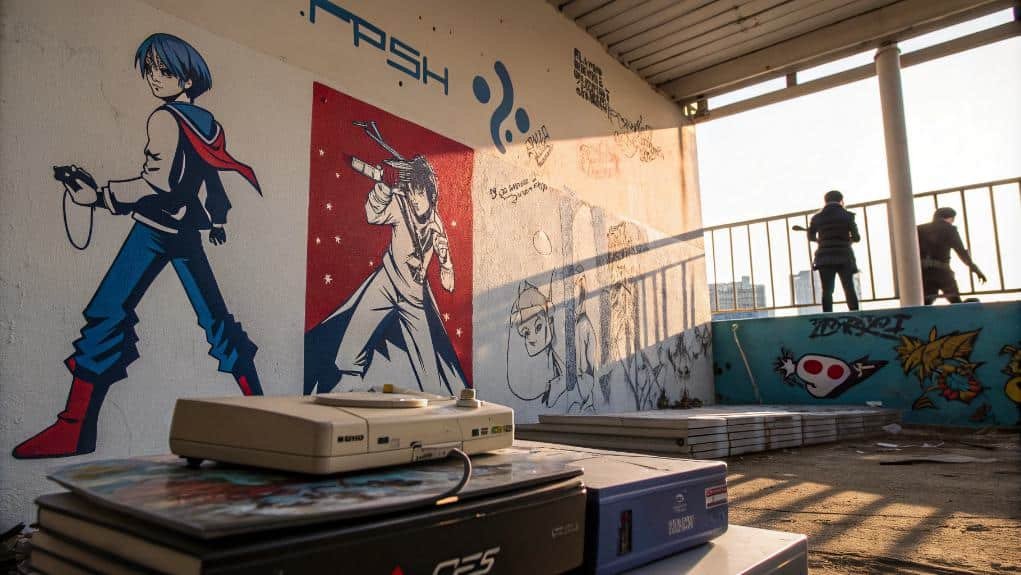The history of Persona 3 began in 2006, revolutionizing the JRPG landscape with its mix of turn-based combat and social simulation. This impactful title saw expansions like Persona 3 FES in 2007, which added new gameplay options, and Persona 3 Portable in 2009, introducing a female protagonist. Each release deepened the character development and emotional engagement, thanks to the unique social link system. The game left a lasting legacy, influencing subsequent titles and the broader genre. With the announcement of Persona 3 Reload in 2024, anticipation builds for how it will honor the past while embracing modern expectations.
Key Takeaways
- Persona 3 launched in 2006, blending turn-based combat with social simulation, becoming a landmark title in the JRPG genre.
- The 2007 release of Persona 3 FES added an epilogue and weapon synthesis, expanding the original narrative and gameplay.
- In 2009, Persona 3 Portable introduced a female protagonist option, altering social dynamics while sacrificing 3D visuals for portable play.
- The upcoming 2024 Persona 3 Reload remake promises enhanced graphics, fully voiced cutscenes, and improved gameplay, but will exclude FES content.
- Persona 3's legacy includes innovations in social link systems and emotional storytelling, influencing future titles in the series and gaming culture.
History of Releases

The evolution of Persona 3 showcases the franchise's commitment to innovation and player engagement. Initially released in 2006 on the PlayStation 2, the original game introduced players to its enthralling story and robust game mechanics, which combined turn-based combat with social simulation elements. This blend allowed for deep character development through interactions and relationships, setting a new standard for RPGs. Additionally, players could engage in evening visits to Tartarus to build experience and collect items, further enriching the gameplay experience.
In 2007, Persona 3 FES enhanced the experience, adding an epilogue titled The Answer and introducing new weapon synthesis options. These improvements not only expanded gameplay mechanics but also enriched character arcs, giving players more depth to explore.
The 2009 Portable version brought significant changes, including the option to play as a female protagonist, which altered social dynamics and character interactions. However, it sacrificed 3D environments and animated cutscenes, emphasizing gameplay over presentation.
Looking ahead, the 2024 remake, Persona 3 Reload, promises fully voiced and animated cutscenes, along with smoother gameplay. Yet, it won't include content from Persona 3 FES, sparking discussions about balancing nostalgia with modern expectations.
Key Game Features
Immersion in Persona 3's gameplay is driven by its key features, which blend combat mechanics, exploration, and social interactions to create a spellbinding experience.
The combat mechanics are significantly enhanced in Persona 3 Reload, allowing players to control all party members. The Shift Feature introduces tactical depth, enabling seamless character switching to exploit enemy weaknesses. Theurgy skills add a layer of strategy, allowing characters to bypass resistances under specific conditions. Additionally, the Theurgy Mechanic grants access to ultimate skills that can devastate foes.
Exploration navigation within Tartarus has undergone a significant overhaul, featuring new visuals and Fuuka's improved abilities for hiding and searching. Dashing accelerates exploration, making it easier to confront or evade Shadows. Players also enjoy the Shuffle Time Update, which makes victories more gratifying.
The social aspects of the game deepen player engagement. New lessons and dorm activities, such as cooking and gardening, help strengthen social links, while Link Episodes add unique content.
Difficulty adjustments, including real difficulty settings and the absence of instant revives, challenge players more than previous iterations. This combination of intricate combat, engaging exploration, and dynamic social interactions forms the core of Persona 3's enthralling gameplay experience.
Impact and Legacy

Few games have left as profound an impact on the JRPG genre as Persona 3, which not only pioneered the Social Link system but also revolutionized the integration of social simulation within traditional dungeon crawling. This blend redefined gameplay mechanics, influencing not just subsequent Persona titles but also a wide array of other JRPGs.
With its striking visuals and unforgettable soundtrack, Persona 3 established an iconic aesthetic that continues to resonate with players today. The game's cultural significance extends beyond mechanics; it forges deep emotional connections with its audience, creating life-changing experiences for many. Players often reflect on how the game's themes of friendship, loss, and self-discovery have shaped their perspectives. Additionally, the introduction of the Specialized Extracurricular Execution Squad (S.E.E.S.) concept was instrumental in enhancing the narrative experience, allowing for more complex character development.
Despite newer entries in the series, Persona 3 remains a beloved classic, frequently revisited and discussed within gaming communities. Moreover, Persona 3's historical significance is evident in its lasting influence on developer trends and its ability to maintain relevance in modern gaming discussions. As it continues to inspire new titles, the legacy of Persona 3 firmly cements it as a pivotal moment in gaming history, leaving an indelible mark on the JRPG landscape.

